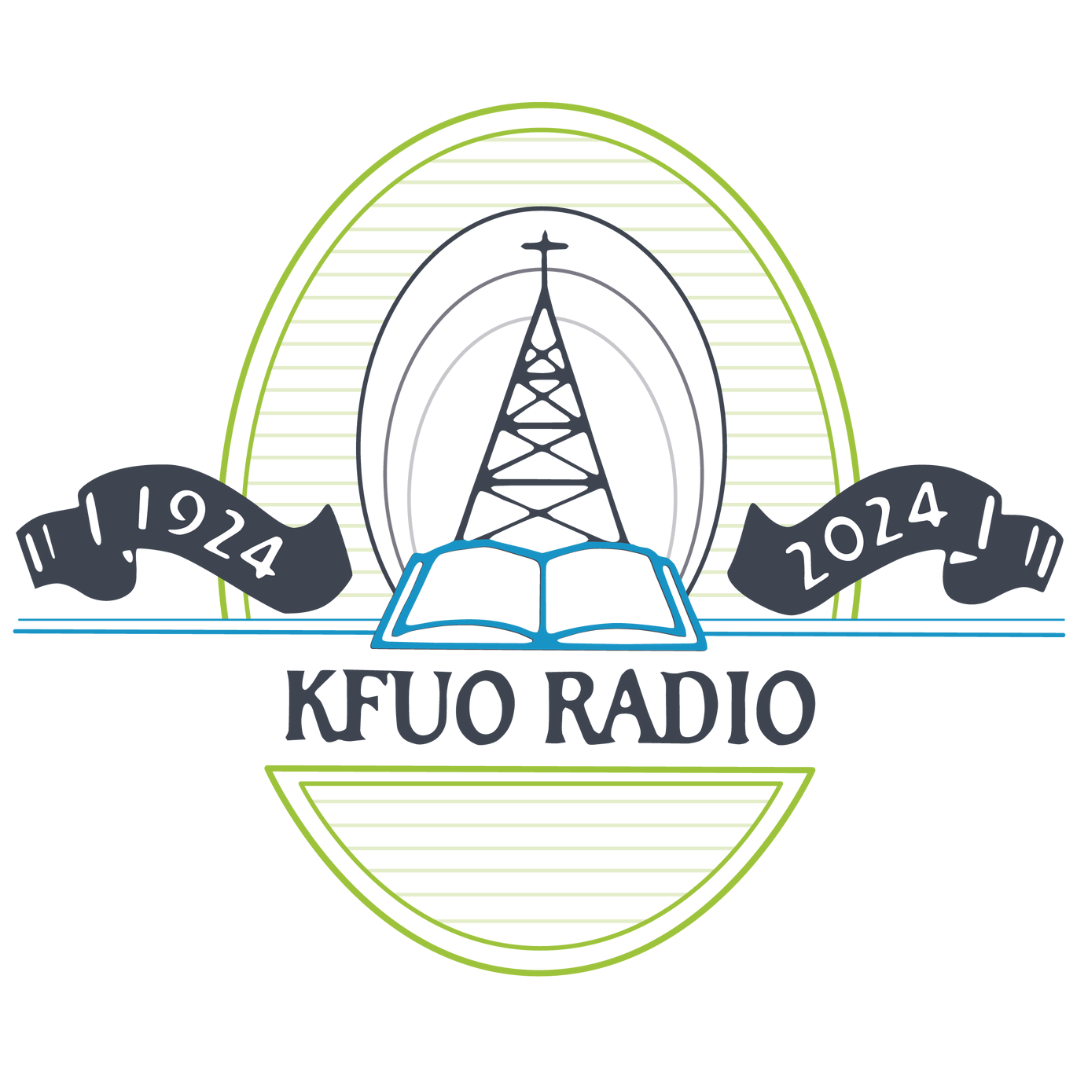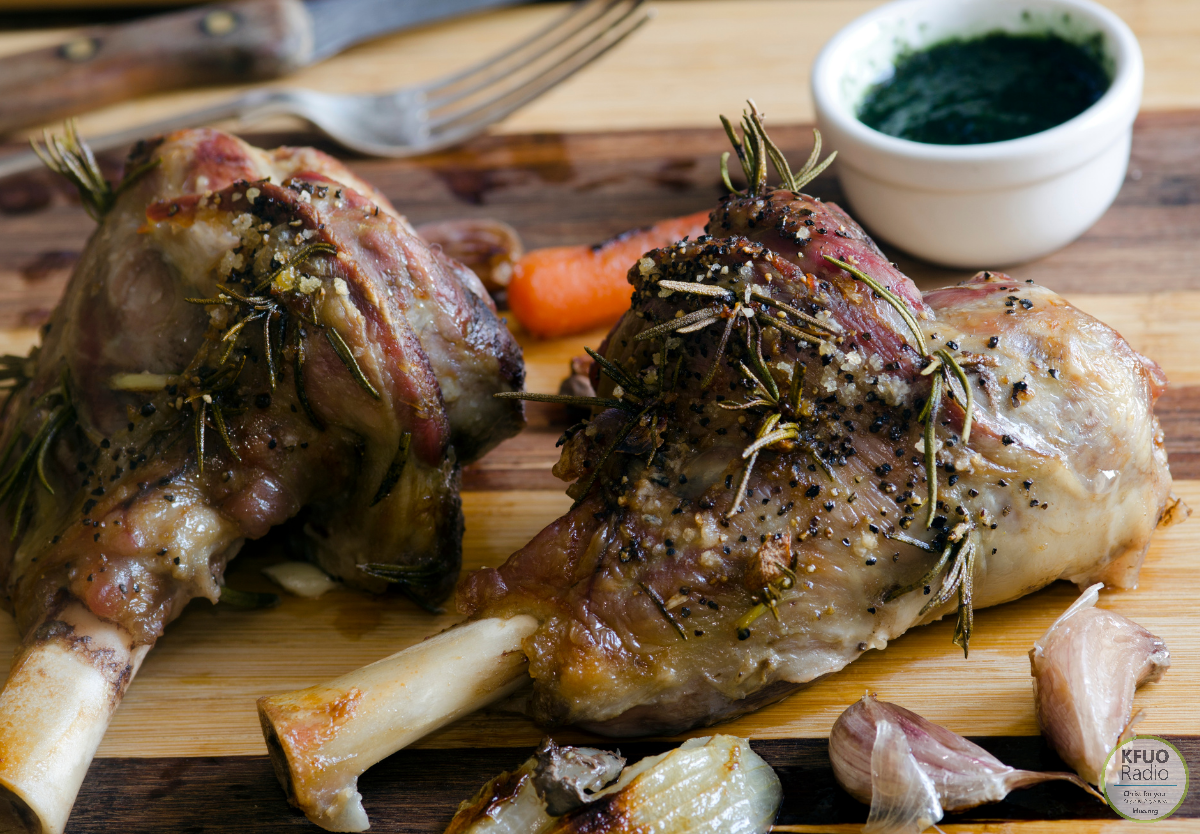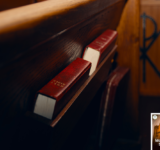Rev. Stephen Preus, pastor at Trinity Lutheran Church in Vinton, IA, joins host Rev. Timothy Appel to study Ezekiel 46:1-24.
Ezekiel continues to see the worship life of the new temple. The prince bears an important responsibility in the regular services of the temple; he represents the people before the LORD. In this way, the prince prefigures the work of Jesus Christ, who is a mediator for us before the throne of God. The differences between Ezekiel’s vision and the regulations of the Torah are a reminder that this text, and the entire Old Testament, is looking forward to its fulfillment in Christ. The instructions concerning the prince’s inheritance recall the jubilee regulations from Leviticus 25 and strengthen God’s promise that His people will no longer be scattered. The presence of the temple kitchens is a reminder that God desires to eat with His people, a reality that is fulfilled in the ministry of our Lord Jesus Christ and the ongoing celebration of His Holy Supper.
“The Faithful Watchman” is a mini-series on Sharper Iron that goes through the book of Ezekiel. Just when Ezekiel should have begun his service as priest in the temple in Jerusalem, the LORD called him to be a prophet in exile in Babylon. Through fantastic visions and attention-grabbing action prophecies, the prophet Ezekiel is a faithful watchman who proclaims the word of the LORD to bring people to repentance over their sins and to faith in the coming Savior, Jesus Christ, the glory of the LORD made flesh.
Sharper Iron, hosted by Rev. Timothy Appel, looks at the text of Holy Scripture both in its broad context and its narrow detail, all for the sake of proclaiming Christ crucified and risen for sinners. Two pastors engage with God’s Word to sharpen not only their own faith and knowledge, but the faith and knowledge of all who listen.
Sharper Iron is underwritten by Lutheran Church Extension Fund, where your investments help support the work of The Lutheran Church—Missouri Synod. Visit lcef.org.
Ezekiel 46:1-24
The Prince and the Feasts
46 “Thus says the Lord God: The gate of the inner court that faces east shall be shut on the six working days, but on the Sabbath day it shall be opened, and on the day of the new moon it shall be opened. 2 The prince shall enter by the vestibule of the gate from outside, and shall take his stand by the post of the gate. The priests shall offer his burnt offering and his peace offerings, and he shall worship at the threshold of the gate. Then he shall go out, but the gate shall not be shut until evening. 3 The people of the land shall bow down at the entrance of that gate before the Lord on the Sabbaths and on the new moons. 4 The burnt offering that the prince offers to the Lord on the Sabbath day shall be six lambs without blemish and a ram without blemish. 5 And the grain offering with the ram shall be an ephah,[a] and the grain offering with the lambs shall be as much as he is able, together with a hin[b] of oil to each ephah. 6 On the day of the new moon he shall offer a bull from the herd without blemish, and six lambs and a ram, which shall be without blemish. 7 As a grain offering he shall provide an ephah with the bull and an ephah with the ram, and with the lambs as much as he is able, together with a hin of oil to each ephah. 8 When the prince enters, he shall enter by the vestibule of the gate, and he shall go out by the same way.
9 “When the people of the land come before the Lord at the appointed feasts, he who enters by the north gate to worship shall go out by the south gate, and he who enters by the south gate shall go out by the north gate: no one shall return by way of the gate by which he entered, but each shall go out straight ahead. 10 When they enter, the prince shall enter with them, and when they go out, he shall go out.
11 “At the feasts and the appointed festivals, the grain offering with a young bull shall be an ephah, and with a ram an ephah, and with the lambs as much as one is able to give, together with a hin of oil to an ephah. 12 When the prince provides a freewill offering, either a burnt offering or peace offerings as a freewill offering to the Lord, the gate facing east shall be opened for him. And he shall offer his burnt offering or his peace offerings as he does on the Sabbath day. Then he shall go out, and after he has gone out the gate shall be shut.
13 “You shall provide a lamb a year old without blemish for a burnt offering to the Lord daily; morning by morning you shall provide it. 14 And you shall provide a grain offering with it morning by morning, one sixth of an ephah, and one third of a hin of oil to moisten the flour, as a grain offering to the Lord. This is a perpetual statute. 15 Thus the lamb and the meal offering and the oil shall be provided, morning by morning, for a regular burnt offering.
16 “Thus says the Lord God: If the prince makes a gift to any of his sons as his inheritance, it shall belong to his sons. It is their property by inheritance. 17 But if he makes a gift out of his inheritance to one of his servants, it shall be his to the year of liberty. Then it shall revert to the prince; surely it is his inheritance—it shall belong to his sons. 18 The prince shall not take any of the inheritance of the people, thrusting them out of their property. He shall give his sons their inheritance out of his own property, so that none of my people shall be scattered from his property.”
Boiling Places for Offerings
19 Then he brought me through the entrance, which was at the side of the gate, to the north row of the holy chambers for the priests, and behold, a place was there at the extreme western end of them. 20 And he said to me, “This is the place where the priests shall boil the guilt offering and the sin offering, and where they shall bake the grain offering, in order not to bring them out into the outer court and so transmit holiness to the people.”
21 Then he brought me out to the outer court and led me around to the four corners of the court. And behold, in each corner of the court there was another court— 22 in the four corners of the court were small[c] courts, forty cubits[d] long and thirty broad; the four were of the same size. 23 On the inside, around each of the four courts was a row of masonry, with hearths made at the bottom of the rows all around. 24 Then he said to me, “These are the kitchens where those who minister at the temple shall boil the sacrifices of the people.”
Footnotes
- Ezekiel 46:5 An ephah was about 3/5 bushel or 22 liters
- Ezekiel 46:5 A hin was about 4 quarts or 3.5 liters
- Ezekiel 46:22 Septuagint, Syriac, Vulgate; the meaning of the Hebrew word is uncertain
- Ezekiel 46:22 A cubit was about 18 inches or 45 centimeters
English Standard Version (ESV)
The Holy Bible, English Standard Version. ESV® Permanent Text Edition® (2016). Copyright © 2001 by Crossway Bibles, a publishing ministry of Good News Publishers.







